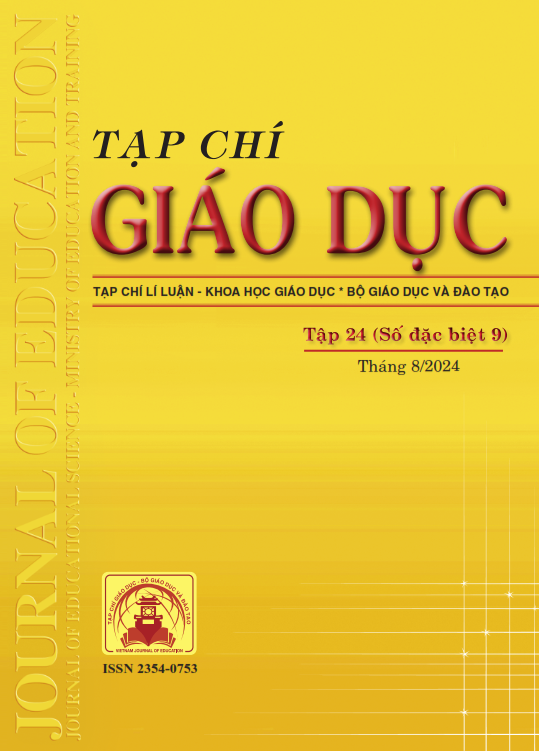Khung năng lực số của sinh viên đại học: Nghiên cứu trường hợp tại Trường Đại học Nguyễn Tất Thành
Tóm tắt
Vietnamese higher education faces a huge challenge in training high-quality human resources, capable of adapting and mastering technology and ICT media in the digital transformation process. Based on the European Education Framework (DigComp) model, the study conducted a survey on 406 students from different majors, studying from first to third year at Nguyen Tat Thanh University. Research results show that the competency framework model of students in Vietnam has 7 competency components with 39 evaluation criteria variables, including: Information security; Information and data proficiency; Digital problem solving; Collaborate in a digital environment; Digital communication; Digital content creation; Intellectual property and digital content programming. This 7-component LLS framework contributes to the basis for evaluating and developing LLS for students in Vietnam. College students are expected to have enough skills to meet the changing requirements of the education system and face the challenges of future employment.
Tài liệu tham khảo
European Commission (2019). Key Competences for Lifelong Learning. https://op.europa.eu/en/publication-detail/-/publication/297a33c8-a1f3-11e9-9d01-01aa75ed71a1/language-en/format-PDF/source-231945798 Ferrari, A. (2012). Digital competence in practice: An analysis of frameworks (Vol. 10, p. 82116). Luxembourg: Publications Office of the European Union. ISSN 1831‐9424 (online). https://doi.org/10.2791/82116 Janssen, J., Stoyanov, S., Ferrari, A., Punie, Y., Pannekeet, K., & Sloep, P. (2013). Experts' views on digital competence: Commonalities and differences. Computers & Education, 68, 473-481. https://doi.org/10.1016/ j.compedu.2013.06.008
Nguyễn Đình Thọ (2011). Phương pháp nghiên cứu khoa học trong kinh doanh: thiết kế và thực hiện. NXB Lao động - Xã hội. Nunnally, J. C., & Bernstein, I. H. (1994). Psychometric theory (3rd ed.). New York: McGraw-Hill. OECD (2005). The OECD Program Definition and Selection of Competencies. The Definition and Selection of Key Competencies. http://www.oecd.org/dataoecd/47/61/35070367.pdf Tzafilkou, K., Perifanou, M., & Economides, A. A. (2022). Development and validation of students’ digital competence scale (SDiCoS). International Journal of Educational Technology in Higher Education, 19(1), 30. https://doi.org/10.1186/s41239-022-00330-0 Van Deursen, A. J., Helsper, E. J., & Eynon, R. (2016). Development and validation of the Internet Skills Scale (ISS). Information, Communication & Society, 19(6), 804-823. https://doi.org/10.1080/1369118X.2015.1078834 Vuorikari, R., Kluzer, S., & Punie, Y. (2022), DigComp 2.2: The Digital Competence Framework for Citizens - With new examples of knowledge, skills and attitudes, EUR 31006 EN, Publications Office of the European Union, Luxembourg, 2022, ISBN 978-92-76-48882-8. https://doi.org/10.2760/115376, JRC128415 Zhao, Y., Sánchez Gómez, M. C., Pinto Llorente, A. M., & Zhao, L. (2021). Digital competence in higher education: Students’ perception and personal factors. Sustainability, 13(21), 12184. https://doi.org/10.3390/su132112184
Tải xuống
Đã Xuất bản
Cách trích dẫn
Số
Chuyên mục
Giấy phép

Tác phẩm này được cấp phép theo Ghi nhận tác giả của Creative Commons Giấy phép quốc tế 4.0 .












